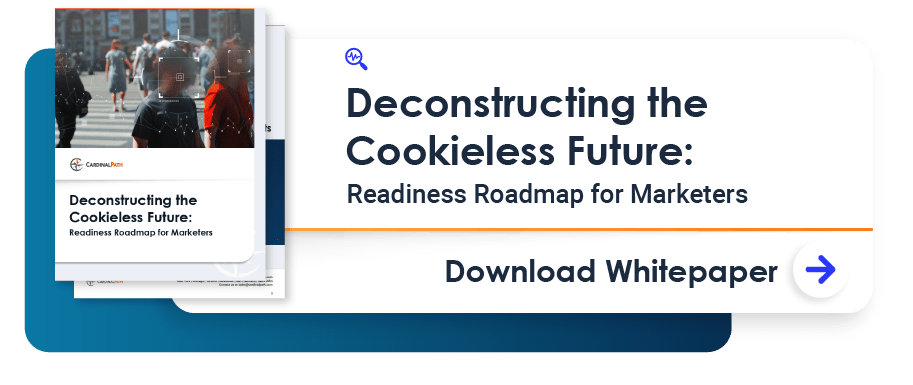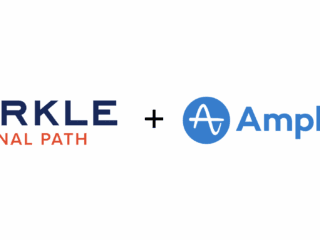Since this post was published, Google have announced a significant shift in the timeline for the deprecation of third-party cookies in Chrome. Rather than a target date of 2022, the stated timeline has moved out to mid-to-late 2023. To learn more about this change and what it means for marketers, read this post.
By now, it’s likely that you’ve heard about the “cookieless future,” the rapidly-approaching era (2022, to be specific) in which cookies, for so long a cornerstone of digital advertising, will crumble, leaving advertisers and publishers to rethink fundamental issues like identity, targeting, attribution, and more. Much ink has been spilled on the demise of the cookie, so here we’ll provide only a brief recap.
Download Deconstructing a Cookieless Future: Readiness Roadmap for Marketers
What is the cookieless future?
Third-party cookies have been instrumental to the digital advertising industry for a variety of important reasons. Fundamentally, they are the means by which digital identity is maintained as users traverse the web. As a result, ad targeting and attribution are generally dependent on these cookies. Soon, however, we will have to make do without these cookies.
The cookieless future has been brought upon us principally by Apple, with Google supplying the coup de grâce. Apple and Google, of course, control the two most commonly used gateways to the web: Safari and Chrome. As consumers become increasingly aware of the fact that their digital activity creates a stream of data — data which, discomfitingly, is being used in various ways — Big Tech companies like Apple and Google have identified an opportunity to compete on privacy. As a result, digital identity, ad targeting, and attribution — all of which provide clear benefits to the general public, though no-one in the industry can be bothered to explain them — are being sacrificed on the altar of privacy. In short: in the name of privacy, Apple and Google are preventing third-party cookies from being used in their web browsers, and the entire digital marketing industry is being thrown into flux as a result.
What’s happened so far, and what comes next?
The cookieless future can be likened to the mass-extinction event that ended the dinosaurs’ history on our planet. Apple’s progressive rollout of “ITP” (Intelligent Tracking Prevention) was the “asteroid impact.” Today, we’re in the midst of the ensuing “impact winter,” aware of our impending doom but not yet having gone extinct.
ITP 1.0 launched in June 2017 with a relatively limited mandate: to prevent cross-site tracking via third-party cookies. Since then, successively more restrictive versions of ITP have rolled out. For example, ITP 2.1 (February 2019) included first-party cookies in its scope for the first time. ITP 2.3 (September 2019) then further expanded the scope to include LocalStorage. These changes have been necessary because the digital ad industry at large initially focused on technical workarounds for ITP, rather than doing the much harder work of grappling with the intent of ITP.
ITP by itself was a cataclysmic event. However, ITP’s impact on a brand is generally, though not exclusively, felt via the proportion of the brand’s audience using Safari for browsing. The other major web browser, Google’s Chrome, did not have similar restrictions until much more recently. Then, in January 2020, Google announced that it would phase third-party cookies out of Chrome by 2022. That is when, in our analogy, the impact winter brought on by ITP will finally result in the extinction of current adtech.
Lastly, amidst the doom and gloom it’s worth noting that, as with the K-T extinction, there will be some survivors. If your interests lie in use-cases supported primarily by first-party rather than third-party cookies (e.g. simple web analytics, on-site testing/personalization, etc.), you will still be impacted, but not to the same extent. While the importance of the cookieless future shouldn’t be underestimated, it also shouldn’t be overstated.
Author

Nick is Vice President of Analytics at Cardinal Path, where he is
View all posts
responsible for the commercialization and delivery of Google Analytics and related services. When not working with clients, Nick authors original research, articles and blog posts, and speaks at conferences around the world. He is an alumnus of the 2023 college football national champion University of Michigan.















